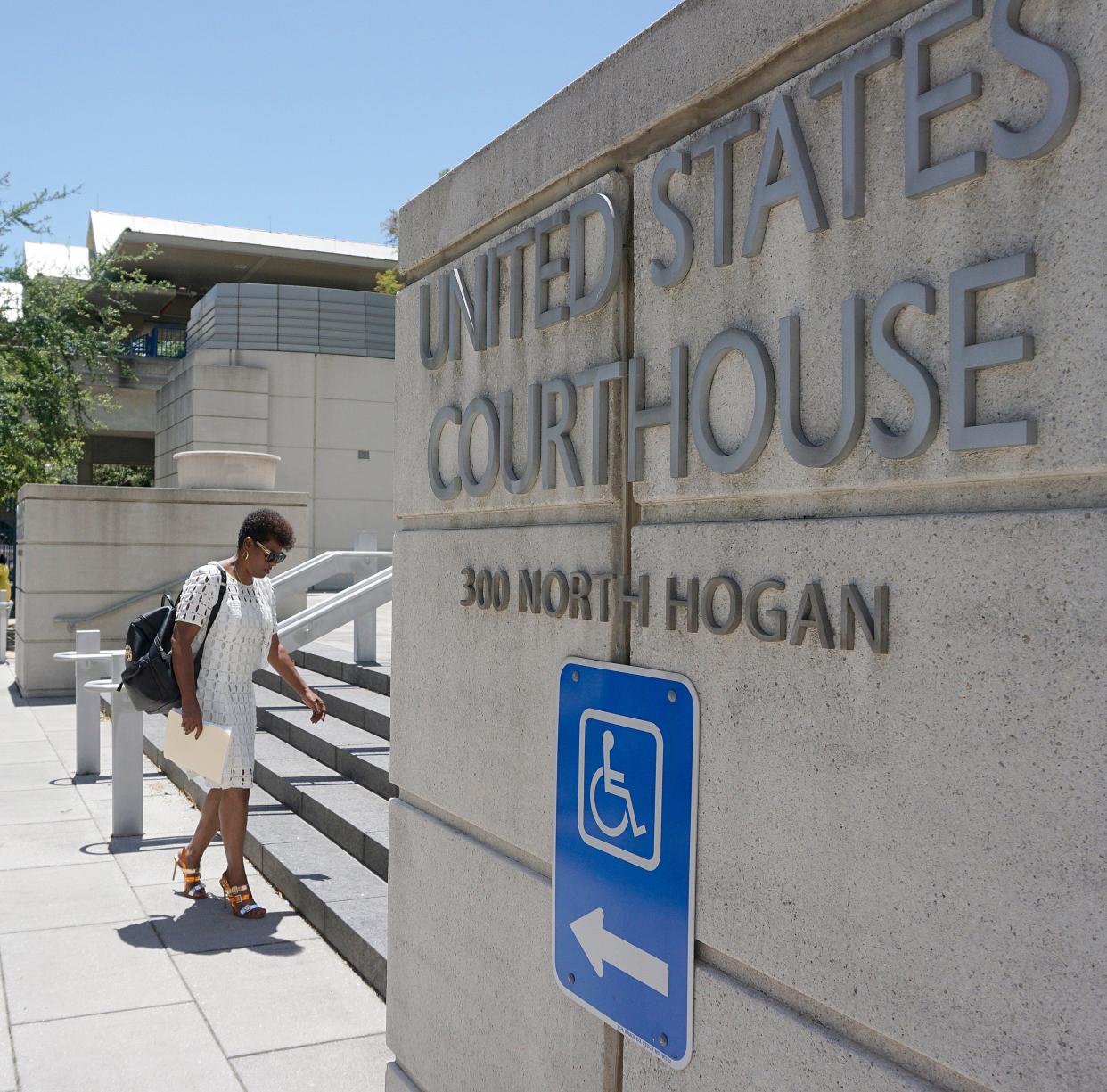FBI agent: Former JEA CEO told associate he expected big payout from controversial bonus plan

Former JEA CEO Aaron Zahn told an outside attorney who was hired to help privatize the city agency that Zahn expected to receive "approximately $40 million" from a bonus scheme he and the utility's former finance chief are accused of concocting in secret, according to testimony Wednesday from an FBI agent who investigated the 2019 privatization campaign.
That agent, Robert Blythe, was summarizing an interview he conducted with Stephen Amdur, of the New York-based firm Pillsbury, which was one of the lead law firms JEA had hired to help solicit offers from private companies to acquire Jacksonville's city-owned electric, water and sewer utility during the ultimately canceled sale effort. Blythe said Amdur told investigators that Zahn mentioned the potential $40 million payout in June 2019 — weeks before Zahn asked the board of directors to authorize the plan.
According to Blythe, Amdur told agents that Zahn also said other members of the executive team were set to receive $10 million in payouts.
More: In JEA investigation, feds interviewed former FPL CEO and sent subpoena to company
More: Former JEA exec said she was 'ordered' to give fraudulent financial presentation
Amdur's purported testimony could, at least in theory, bolster the government's core allegation at trial that Zahn knew the bonus plan had the potential for huge payouts and intended to receive one, even while members of the board of directors believed it was a modest incentive program with a total agency-wide cost of as little as $3.4 million. Prosecutors have alleged that Zahn and Wannemacher layered work product from an outside compensation consultant on top of the actual bonus plan they intended to implement in order to disguise it. In truth, prosecutors claim, it was an opaque scheme that operated a bit like an employee stock purchase plan with potential payouts that would be turbocharged in the event JEA went private.
Blythe's own testimony Wednesday was part of an ongoing legal proceeding called a Kastigar hearing, a process during which prosecutors must convince a magistrate judge that the evidence they relied on to bring an indictment against Zahn and Wannemacher did not rely on statements the two men gave under oath during the course of a workplace investigation in late 2019 and early 2020 — statements for which they received immunity. Zahn and Wannemacher are accused of being the architects of a scheme to enrich themselves by skimming profits off the top of a sale of JEA, a project that imploded amid scandal and consumed their tenures at the city agency.
The hearing requires the government to show it had an independent basis to pursue investigative leads outside the immunized testimony Zahn and Wannemacher provided city attorneys. To demonstrate that, A. Tysen Duva, the lead prosecutor, used the past two and a half days to have Blythe meticulously walk the judge through evidence the government used to build its case to the grand jury. That has offered a rare preview of some of the key evidence Duva plans to use at trial.
It is also a largely one-sided presentation of evidence. For the purposes of the Kastigar hearing, defense lawyers are most interested in demonstrating the government may in fact have used immunized testimony to make their case — not necessarily in rebutting the evidence Duva has disclosed. At times, however, the defense attorneys have objected when Duva has asked Blythe to summarize his witness interviews in open court, objections the U.S. magistrate judge overseeing the hearing has overruled.
A question at the core of the case is whether Zahn and Wannemacher acted alone or if they were relying on advice from outside law firms and experts, a defense they have previously raised. Prosecutors have said those outside consultants were hired primarily to offer the appearance they had input. Blythe said Wednesday, for example, that Amdur had testified his firm did not provide advice on the legality of the allegedly lucrative bonus plan. The formula, which could have resulted in multimillion-dollar payouts had JEA been sold to a private buyer, "was provided to them," Blythe said, by Wannemacher.
Eddie Suarez, one of Zahn's defense attorneys, also began his cross-examination of Blythe on Wednesday. His line of questioning focused on whether Blythe may have inadvertently been exposed to the defendants' immunized testimony and raised an implicit criticism that prosecutors did not use a "filter team" to ensure those materials didn't make their way into the hands of investigators.
The hearing will continue Thursday morning.
Nate Monroe is a metro columnist whose work regularly appears every Thursday and Sunday. Follow him on Twitter @NateMonroeTU.
This article originally appeared on Florida Times-Union: FBI: Former JEA CEO expected big payout from bonus plan

